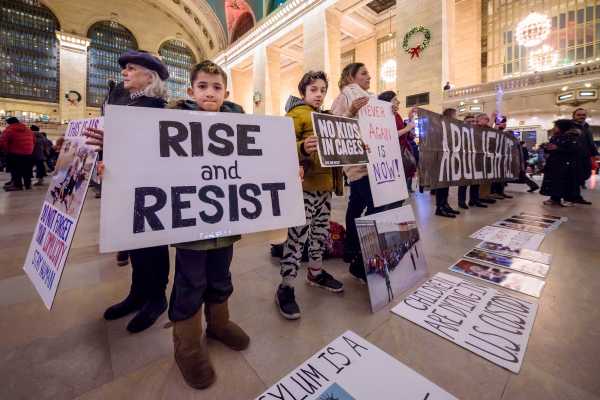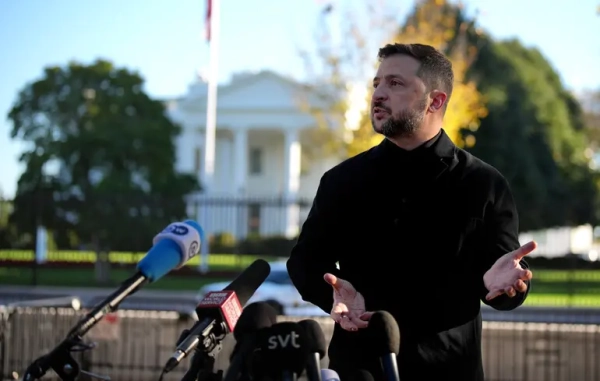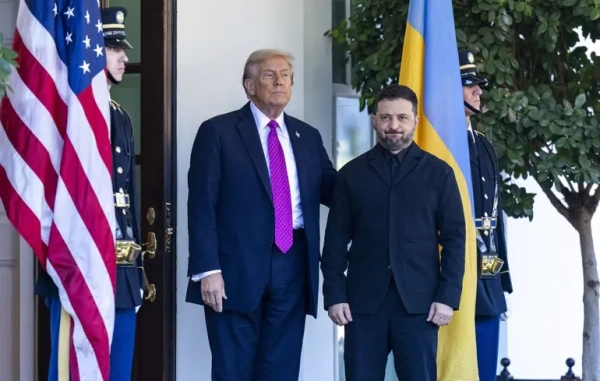
Immigrant children held in US family detention centers must be released by July 17 due to concerns about the coronavirus pandemic, a federal judge ruled Friday.
It’s the first time in the longstanding legal battle over the detention of migrant children that a court has set a deadline for their release, a situation spurred on by reports of increasingly dangerous conditions in the centers.
According to the court order, as of June 25, 11 people at a family detention center in Karnes City, Texas have tested positive for Covid-19. Results are pending from tests at another center in Dilley, Texas, where four staff members have tested positive. And other diseases spreading among children in the centers are evidence of how vulnerable they are to the virus, wrote Judge Dolly M. Gee of the US District Court for the Central District of California in her order.
“The [family residential centers] are ‘on fire’ and there is no more time for half measures,” Gee wrote.
Gee also excoriated the Trump administration for failing to abide by the most basic recommendations set by the Centers for Disease Control and Prevention (CDC) for preventing the spread of Covid-19 in the detention centers. The order notes Dr. Paul Wise, a Stanford University professor of pediatrics and health policy who was assigned in 2019 to monitor the health standards at the facilities, found “ICE’s critical areas of improvement are in social distancing, masking, and testing—in other words, the basics.”
It was in response to this assessment that Gee ordered Immigration and Customs Enforcement (ICE) to release children to their parents or another guardian, or a Covid-free group home with their parents’ consent.
The order requires the release be done with “all deliberate speed” — and by July 17 at the latest. It applies to children who have been held in the two Texas centers and one Pennsylvania center for more than 20 days.
According to the ruling, there were 124 children in ICE custody as of June 8. The agency recently released nearly 400 other children from shelters.
ICE told Vox it is reviewing the order, adding that the 11 positive Covid-19 cases in the Karnes detention center were tested at intake and haven’t come in contact with other families in the facility. “The detainees are asymptomatic and have been medically isolated by family unit,” the agency’s spokesperson wrote in an email.
Gee’s order is not the first time the Trump administration has been confronted by the courts over its detainment of migrant children during the coronavirus pandemic, but it is the first time such a deadline has been set.
Courts have been battling the Trump administration over child detention since the virus began
Gee oversees the administration’s compliance with the 1997 “Flores settlement,” which requires that the government release children “without unnecessary delay” and to keep them in safe, clean conditions while they are detained.
In late March, as states across the country were shutting down their economies in response to the rapid spread of the virus, Gee ordered ICE to promptly release immigrant children from custody or explain why they must continue to be detained. In April, she again ordered ICE to conduct individualized release assessments for children in custody.
In an attempt to come into compliance with the Flores settlement, ICE officials then reportedly asked parents to choose between staying with their children in detention indefinitely or to allow their children to be released into the custody of family members, sponsors, or the Department of Health and Human Services.
A group of House Democrats sent a letter to the Trump administration in May, urging them to explain these reports.
“The Administration must stop using this public health crisis as a means for implementing unlawful and inhumane immigration policies. In these extraordinary times, human suffering need not be compounded by locking up families or instilling fear in the hearts of migrant parents,” the letter read.
ICE officials have said the policy was not an attempt to separate families, and was not part of a “binary choice” policy, but that it was implemented to ensure the health and safety of the children in question.
Medical experts have raised concerns since the beginning of the pandemic that migrants living in congregate detention facilities would be particularly vulnerable to Covid-19, even if the administration were to closely follow CDC guidelines. Because of these concerns, groups like the ACLU have been suing for the release of immigrants from detention centers across the country since mid-March.
From what scientists currently understand about the coronavirus, children without underlying health conditions are unlikely to die or become significantly ill from Covid-19, but they can carry the virus and expose other vulnerable populations. While there is little research on the direct impact of child separation in US immigrant detention facilities, a large body of research indicates that separation of children from their parents can contribute to post-traumatic stress disorder, learning challenges, and other traumatic social and psychological effects.
Support Vox’s explanatory journalism
Every day at Vox, we aim to answer your most important questions and provide you, and our audience around the world, with information that has the power to save lives. Our mission has never been more vital than it is in this moment: to empower you through understanding. Vox’s work is reaching more people than ever, but our distinctive brand of explanatory journalism takes resources — particularly during a pandemic and an economic downturn. Your financial contribution will not constitute a donation, but it will enable our staff to continue to offer free articles, videos, and podcasts at the quality and volume that this moment requires. Please consider making a contribution to Vox today.
Sourse: vox.com






